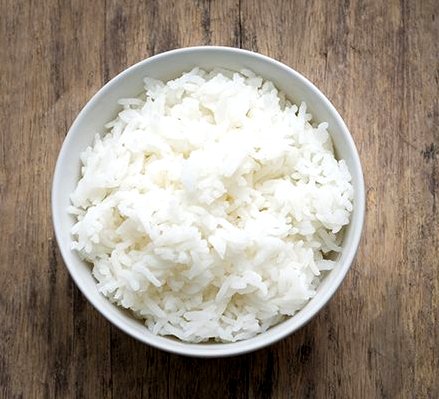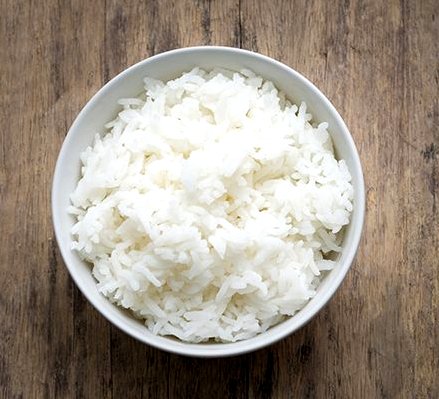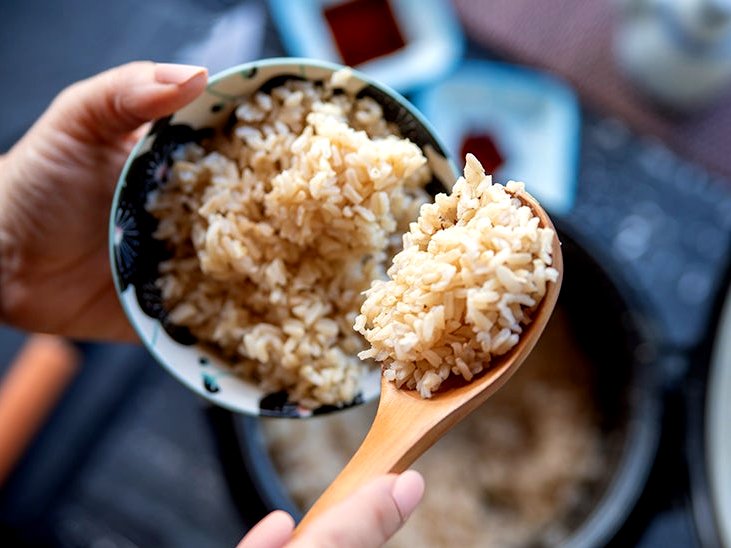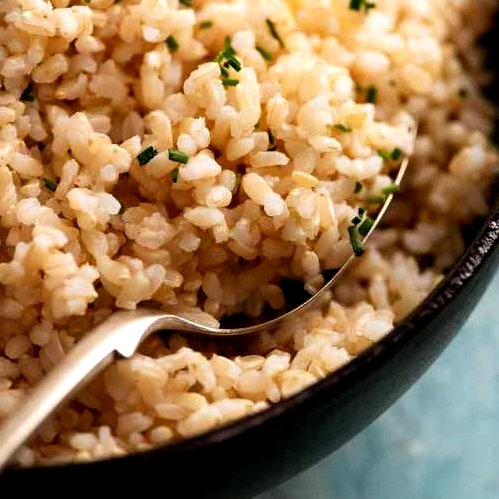As an experienced vegan specialist, I am often approached for advice regarding which food items will best support a plant-based lifestyle. One frequently-asked question: "Can the consumption of rice contribute to my wellbeing?" Rice holds an esteemed place in many global cuisines and numerous opinions exist about its nutritional benefits. In this blog post, we will delve into the details regarding vegan rice eating habits and distinguishing between verifiable information and falsehoods. At this forum, we shall examine a variety of issues surrounding rice consumption in vegan diets: its nutritional yield, potential adverse reactions of overindulging in rice consumption, optimal varieties for improved health benefits and how moderation in intake helps prevent weight gain or blood sugar problems, arsenic contamination in grains (with tips to limit exposure), as well as its presence. Regardless if you endorse rice or remain skeptical of its inclusion as part of veganism; come join us and find out whether rice really can fulfill all your nutritionary needs!
I. Nutritional Benefits of Rice
Rice is one of the mainstays of veganism and boasts an abundance of benefits that may surprise even its most avid advocates. Enjoy its nutritional delights when consumed moderately for maximum satisfaction!
Complex Carbohydrates
Rice contains complex carbohydrates that provide sustained energy to our bodies. Complex carbs differ from their simpler cousin - often found as sweets - in that they're digested slowly to maintain optimal energy levels in our bloodstreams and ensure steady supplies of blood sugar for sustained energy supply.
Fiber Content
Fiber content deserves special mention due to its ability to slow the digestion rate of rice and ensure gradual release of sugar into your bloodstream, thus minimizing unwelcome spikes in blood sugar. Not only that; this meal also includes essential vitamins and minerals which provide numerous health benefits.
Magnesium and Phosphorus
Brown rice's abundance of magnesium makes it the ideal food to help regulate brain, heart, and muscle functions. Furthermore, health enthusiasts often seek phosphorus' bone-strengthening benefits; additionally it's thought to play an integral part in kidney functioning as well.
B Vitamins
B vitamins such as thiamin, riboflavin, niacin, and vitamin B6 - essential components to supporting healthy nerves, brain functioning, and maintaining macronutrient metabolism - can be found abundantly within rice grains.
Versatility of Rice
Rice's texture, flavor and versatility makes it a favorite vegan food choice, adapting well to various dishes from stir fries to salads. Plus its compatibility with various vegetables, legumes and protein sources helps create well-rounded meals that provide long-lasting satisfaction.
Inclusion in a Vegan Diet
Rice is an indispensable food item that should be included carefully into a vegan diet, particularly brown rice due to its nutritional benefits. For optimal nutritional outcomes while limiting potential downsides, diversify consumption with other whole grains like quinoa or millet for maximum benefit and minimize any negatives.
Learn more about Nutritional Benefits of Rice at CHHS.II. Nutritional Benefits of Rice
Rice is an integral staple food, yet eating too much of it may lead to unwanted health consequences. Of particular concern to vegans who rely heavily on carbs like rice as hunger satiation mechanisms; carbs should not be seen as inherently wrong but must be balanced out with fruits, vegetables and plant-based proteins for balanced nutrition and portion control if overindulgence occurs.
Blood Sugar Spikes
Rice can also contribute to blood sugar spikes when consumed in large quantities or when combined with other high glycemic index foods, particularly when eaten alone or combined with foods high on this index. Since excessive bursts of sugar released quickly into your bloodstream can trigger fatigue-inducing crashes, pairing rice with low GI foods such as vegetables or plant-based proteins will help control how fast sugar enters your system, keeping steady levels.
Arsenic levels
Rice presents another significant health challenge due to its potentially high levels of arsenic. Arsenic is a naturally occurring element, found in soil and water sources; over time it accumulates in rice grains. Although no official safe levels for arsenic in food have been set forth, precautionary steps can be taken in order to reduce exposure - for instance pre-soaking your grains for 30-60 minutes prior to cooking may help lower arsenic concentration.
Thus, it is recommended to consume rice judiciously and be aware of portion sizes. Pairing it with plant-based foods rich in fiber and protein is said to help regulate blood sugar effectively. In order to limit exposure to arsenic levels found in rice products from areas not known for arsenic contamination or selecting those grown organically may reduce exposure further.
III. Potential Downsides of Rice
Rice is an intricate topic with numerous aspects. From brown to white to wild to Jasmine varieties, every variety offers its own distinct nutritional profile and consideration should be made when choosing one for yourself.
Brown Rice
Brown rice stands out among all of its varieties as being particularly nutritious. Being minimally processed, it retains much of its bran and germ layer for added nutrition including fiber, complex carbohydrates and essential minerals and vitamins - not forgetting its antioxidative benefits to ward off free radical damage in our bodies!
White Rice
White rice on the other hand has had its outer layers stripped away, rendering it deficient in nutrition and fiber. Although some added back through fortification processes, its nutritional benefits still pale in comparison to those offered by brown rice.
Wild Rice
Wild rice, an edible seed from grasses, provides an excellent source of protein, fiber and B vitamins. Furthermore, its mineral content includes magnesium, phosphorus, copper and manganese that support healthy cell function, bone density and energy production.
Jasmine Rice
Jasmine rice is another widely enjoyed variety, known for its sweet aroma and long-grain structure. While not providing as many nutrients as brown or wild varieties do, Jasmine still delivers complex carbs to help sustain energy levels when eaten alongside plant-based foods.
To maximize nutrient intake and minimize potential health issues, it's advisable to vary your choices of rice. While brown is the clear winner in terms of nutritional benefits, any variety can make an excellent addition to a vegan diet when eaten in moderation and combined with other nourishing foods.
"Learn more at PubMed"Cooking process also has a substantial influence on the nutritional value of rice, with overly wet preparation causing nutrients to leach out into the water and dissipate from it. Therefore, using a rice cooker is advised so as to maintain even heating for all-around nutrition preservation.
IV. Brown Rice vs Other Rice Varieties
Cooking rice may seem straightforward, but its complexity lies hidden underneath its seemingly straightforward process. Your preparation and cooking methods have an enormous impact on its nutritional value - an aspect many novice chefs overlook when beginning this culinary experience.
Brown Rice
Brown rice can be tricky. Not only does it take longer to prepare than white, it often needs additional liquid to properly cook... plus you must first soak your brown grains for at least an hour in water! This process not only speeds up cooking time but is said to get rid of debris or impurities on the grains - truly an intensive cleaning!
Brown rice requires approximately two and one half cups of water for every cup of brown rice that needs to be cooked, so when ready for cooking it should be measured out accordingly. Once added into boiling water, simmer on a reduced heat for 45 to 1 hour (depending on desired texture and meal structure - another big factor!). Cover and allow it to remain covered if necessary until time for serving has arrived!
Other Kinds of Rice
But wait - different kinds of rice require different methods for preparation and cooking. For instance, Jasmine typically needs less water than brown; therefore a 1:1 ratio between water to grain should suffice. Wild rice on the other hand needs additional time and more liquid for proper softening and needs extra attention than its counterparts.
At its heart, successful rice cooking requires paying close attention to the instructions on the package label - often forgotten but essential! Of course, feel free to experiment and modify these as desired; after all, life would be empty without some artistic expression!
Culinary Possibilities
Note that rice offers endless culinary possibilities! Brown and white varieties make an excellent foundation for stir fries and grain bowls; wild rice adds great texture to soups or side dishes; while Jasmine rice works beautifully as the basis of Mediterranean-style salads. Clearly, rice is a versatile food with endless applications; be sure to include it more often into your vegan diet for flair, flavor, texture, and nutrition - but always remember the recommended portion sizes so as to maintain balance and moderation! Are you ready to chop, rinse, soak, and simmer some rice? Get started now!
Conclusion
To rice or not to rice is a perplexing and indecipherable dilemma! Let us explore this puzzle together by delving deeper into its multifaceted layers and unwrapping its mysteries! Brown rice boasts both nutritional advantages and disadvantages that should be explored! From being high in fiber content and complex carbs, to providing essential vitamins and minerals! There is much knowledge available when it comes to brown rice! Yet we should not forget wild and jasmine rices' unique culinary value and versatility! However, readers should take caution with their usage; portion control, pairing with plant-based nutrition sources and being aware of potential arsenic exposure should all play an integral part of consuming rice responsibly. Rice can be the cornerstone of vegan diets, providing sustainable energy through its nutritional density. There's endless culinary potential with all the varieties crafted and prepared perfectly! Your culinary adventure awaits! Despite all its perplexities, rice remains a healthy addition, delightful in its versatility to cover almost any cuisine that ails us - don't fear as rice won't lead you astray!




